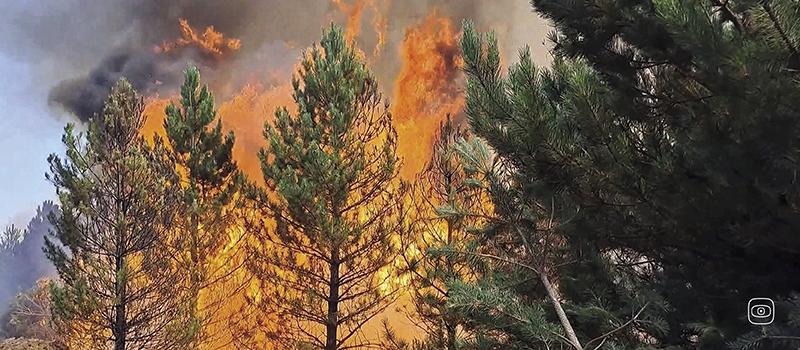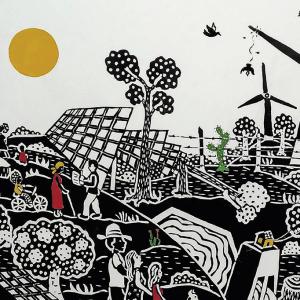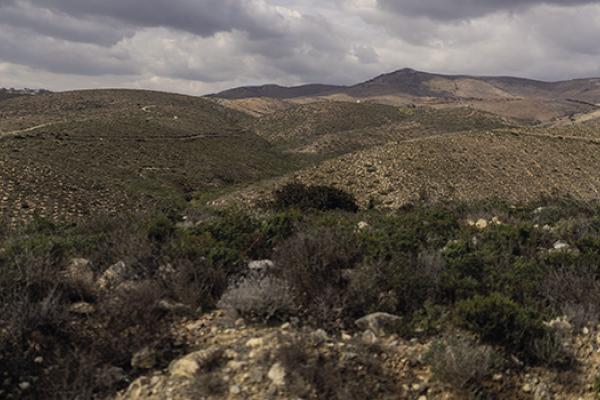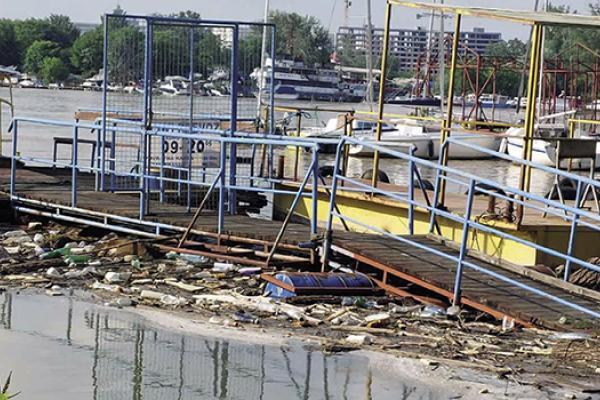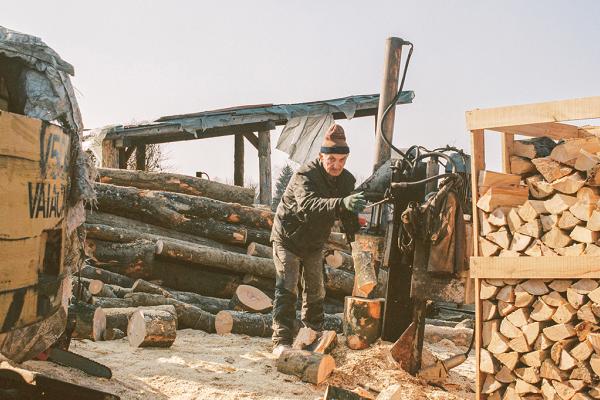Of these, 95,214 hectares of forests and woodlands burned last year alone. This is 36 percent of all forest fires in the Western Balkans, where last year over 250,000 hectares of forests and woodlands burned.
From 2000 to 2022, fire damage to Macedonia's forests is estimated at €170 million. This includes timber losses and fire-fighting costs. The total damage would be much higher if the wider environmental and economic impacts, such as habitat loss, tourism and ecosystem services such as water and air purification, were included.
90% of these fires are attributed to human activity. Fires near the Macedonian-Bulgarian border were reported on 1 and 8 January 2025, with recurring incidents since 2021, when nearly 4,100 hectares burned. The deliberate burning of pine forests is linked to the higher calorific value of burnt pine, which is then sold cheaply for pellet production.
The new leadership of the state-owned company National Forests has uncovered significant criminal activity in forestry, with employees allegedly colluding with companies to profit from both burned and unburned timber, logging without permits and covering up the illegal activity. Prosecutors often close fire-related cases for lack of evidence, despite rising crime rates, including forest fires.
Cases related to forest fires in the Macedonian prosecution are often closed without investigation because there is insufficient evidence of the crime. Cases related to forest fires are most often prosecuted for the crime of causing a general danger. Amendments to the Penal Code have made the penalty for causing a general danger higher than the penalty for causing a forest fire. In recent years, the prosecution has noted a trend of an increase of about 10 per cent in other crimes, as well as in crimes related to forest fires.
Another problem with reporting forest fires is that the state has not registered all forest land in the cadastre, so it is possible to catch a person setting fire to a forest when on paper the area is listed as pastureland. This makes enforcement difficult.
While Macedonia does not have a complete forest inventory, a German NGO is trying to map Macedonia’s natural forests and primeval forests using satellite imagery, chlorophyll analysis, and field visits. It is estimated that the area of the Macedonian primeval forests is 100 times larger than officially known. In Germany, DNA analysis of wood is used to check whether wood products are correctly declared in terms of the raw materials used.
The institute near Hamburg, which carries out the analyses, has foiund that 50 per cent of pellet declarations are incorrect. Often, neither the type of wood used in production nor the origin of the wood is stated. Bulgaria was the top importer of Macedonian wood in 2022. Bulgaria has banned the export of burned wood because forests have been deliberately set on fire in order to use cheaper wood in industry.
But environmentalists are now facing a challenge to preserve forests, as industry puts pressure on the government to change the law. The proposal is to allow deforestation to increase from the current 0.01 per cent to 17 per cent, or 170 times more, to make way for so-called harvesters, or large-scale mechanised logging.
The population is now being trained to prevent and fight forest fires. By comparing data from various institutions and EUROSTAT, the team uncovered data which showed that the quantities of paper exported did not correspond to the quantities recorded in the statistics, which were two to four times higher.
Many of the people we interviewed or briefed in all three countries pointed out that it is impossible to prove exactly where the burned wood ends up, because export to one country does not mean that the wood has reached its final destination. In addition, the industry mixes wood from different sources in its production. Nevertheless, the team found out what two Macedonian institutions will be doing in the near future to combat deliberate forest fires.
During this research, the team travelled to Nemanjici, Strumica and Skopje in Macedonia, Sofija and Samokov in Bulgaria, and Radolfzell and Grosshansdorf in Germany.
Illustration (c) Marjan Mitrinovski
